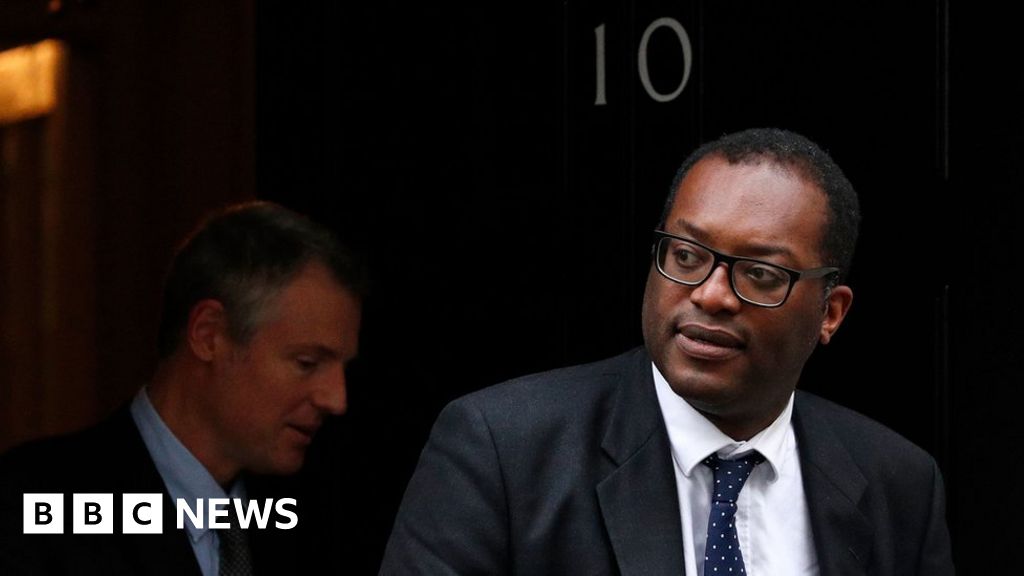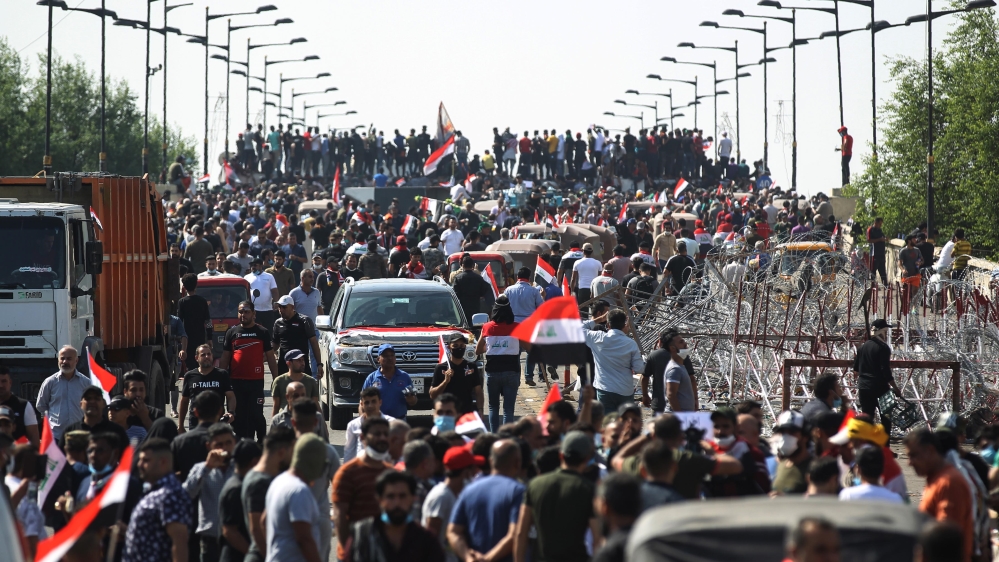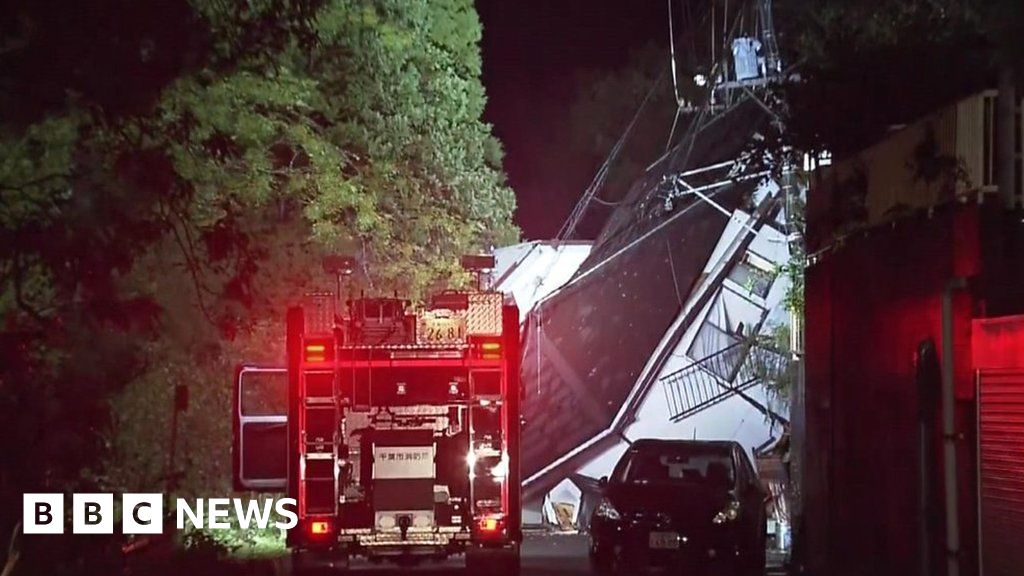Defense Secretary Mark Esper said Oct. 25 that the United States would maintain a ‘reduced presence’ in Syria, in a partial reversal of President Trump’s withdrawal.
President Trump was persuaded to leave at least several hundred troops behind in Syria only when he was told that his decision to pull them out would risk control of oil fields in the country’s east, according to U.S. officials.
Trump had rejected arguments that withdrawing U.S. forces would benefit American adversaries, while endangering civilians and Kurdish allies, but he tweeted Thursday that “we will NEVER let a reconstituted ISIS have those fields.”
Defense Secretary Mark T. Esper confirmed on Friday that troops would remain in eastern Syria to prevent the oil fields from being retaken by the Islamic State.
Speaking at NATO headquarters in Brussels, Esper said that military planners were “considering how we might reposition forces in the areas” and that the deployment “would include some mechanized forces” such as tanks or other armored vehicles and support personnel.
A U.S. official with knowledge of operations in Syria said that Trump’s interest in the oil provided an opportunity for the Pentagon, which was unhappy with the initial decision, to temper his insistence on a full withdrawal and allow counterterrorism operations and airspace control to continue.
“This is like feeding a baby its medicine in yogurt or applesauce,” said the official, one of several who spoke on the condition of anonymity about internal U.S. deliberations.
One senior NATO diplomat said Esper offered few details about the new deployment during the NATO meeting.
“He’s trying to elaborate on Trump’s intuitions,” the diplomat said, speaking on the condition of anonymity to discuss the closed-door discussions. “It’s hard.”
Sen. Lindsey O. Graham (R-S.C.), a Trump ally who had called the withdrawal decision a major blunder, pressed the case for controlling the oil fields during a Thursday lunch with the president.
“He sees the benefit … of controlling the oil as part of a counter-ISIS strategy,” Graham said in an interview.
Trump has declared the militant caliphate “100 percent” defeated, although U.S. officials have said that thousands of Islamic State fighters remain in Syria.
The eastern oil fields in Deir al-Zour province, where most of Syria’s relatively small and low-quality reserves are located, were once the primary source of income for the militants, who sold the oil to the Syrian government, Turkey and, reportedly, even to the Kurdish-led Syrian Democratic Forces (SDF).
Massive U.S. and coalition air bombardments, beginning in 2015, drove the Islamic State either underground or away from the area. Since then, the SDF has controlled it, in the presence of about 200 U.S. troops. According to people familiar with the operations, the SDF has continued selling the oil on the black market — largely to the Syrian government.
The desert region is far from major Kurdish areas in Syria, which lie along the northern border. Hundreds of thousands of Kurdish civilians have been driven south, and east into Iraq, by Turkish troops and their Syrian Arab allies that have pushed at least 20 miles into Syria.
Another U.S. official said the latest plan calls for several hundred troops, but “less than a battalion,” spread across the region at several locations between the towns of Hasakah and Deir al-Zour. A battalion in most U.S. military units includes 800 to 1,000 troops.
The official said these forces would be in addition to those already there, with the result conceivably approaching the 1,000 Trump initially ordered withdrawn.
The introduction of tanks or Bradley Fighting Vehicles — which flanked Trump during his July 4 speech in Washington and cost less to operate — are a “symbolic move with tactical benefits,” the official said.
Among those benefits are long-range optics that can help detect enemy forces and the ability to maneuver over uneven terrain that other vehicles struggle with, the official said. But above all, they show firepower, the official said. There are about 12 to 15 tanks or Bradleys in each company possessing them.
Trump announced the U.S. pullout from Syria after yielding to the Turkish invasion. Turkey had demanded that the SDF, whose Kurdish leaders it considers terrorists allied with Kurdish separatists in Turkey, abandon the border region.
But the northern rim has also been the main ground supply route for U.S. forces in Syria, including those in the Deir al-Zour province where they are now to remain to guard Syria’s largest oil field.
The area is remote and inaccessible except by three border crossings from Iraq, two of which are controlled by Iranian-backed Shiite militias in Iraq. The main crossing at Fishkhabour is in the far northeast corner of Syria, inside an area now claimed for the Syrian government under an agreement signed this week by Turkey and Russia, Assad’s main ally.
One U.S. official said that for now, the military has continued to run ground resupply convoys into Syria from Iraq through the Fishkhabour crossing this week, deconflicting with Russian forces as necessary.
Access to any of the crossings also requires permission from the government of Iraq, which last week said that U.S. forces being evacuated there from Syria could only remain for four weeks.
Even if the border crossings could be negotiated with Russia, Syria, Iraq and the militias — depending on who is in charge at a given time and place — road access to the scattered and relatively small U.S. outposts around the main Omar oil field remains insecure and difficult along desert tracks and dirt roads, according to several people with knowledge of the area.
While larger U.S. installations — many now abandoned — had been clustered in Kurdish areas closer to the Turkish border, the American presence in the more sparsely populated areas to the south has been light, said Nicholas A. Heras, a scholar who tracks Syria at the Center for a New American Security. Maintaining and protecting troops in isolated areas of Deir al-Zour will be a challenge, he said.
“The United States is dependent on the SDF, and the devil will be in the details” of any arrangement, Heras said.
If the United States cannot maintain a land route into Syria, it may have to expand a small airfield in the Deir al-Zour region or a base at Rmeilan, just south of the Turkish expansion area in northeast Syria. The base was the second-largest U.S. facility after the border town of Kobane, now occupied by Russian and other forces, and the only one capable of receiving large cargo aircraft, Heras said.
The U.S. mission shift to protecting oil fields could also raise issues in Congress.
The Pentagon operates in Syria under the long-standing Authorization for Use of Military Force, passed by lawmakers in the wake of terrorist attacks in September 2001 to target “nations, organizations, or persons” who were involved and to prevent “future acts of international terrorism.”
While the Obama and Trump administrations have argued that the authorization allows action against the Islamic State, the Syrian regime also wants the oil fields. In February 2018, U.S. forces used airstrikes and artillery to kill more than 100 advancing Russian mercenaries and Syrian forces advancing in the area after commanders determined that U.S. troops on the ground there were in danger.
Esper’s announcement in Brussels capped two days of discussions at NATO headquarters that were dominated by anger directed at Turkey, a member of the alliance, for invading Syria.
Turkey’s agreement with Russia to jointly send in troops to the region to fill the vacuum created by the U.S. withdrawal has also caused heartburn at NATO. The alliance spends much of its energy countering threats from the Kremlin, and many fear the increased instability in Syria has been a gift to Russia.
“Recent events in Syria gave bonuses to the Russian side, which is neither in Turkey’s nor in NATO’s interest,” said Latvian Defense Minister Artis Pabriks.
Lithuanian Defense Minister Raimundas Karoblis expressed similar views. “We are not very enthusiastic when we see Russians on former U.S. bases,” he said. “The alliance should not give gifts to a strategic competitor.”
But NATO has little recourse to take action against Turkey. The organization’s rules do not allow members to be kicked out, nor is it a venue for sanctions to be imposed. Individual members have broad power to put holds on decisions. And many NATO members still calculate that, even though Turkey can be a frustrating ally, their own security is still improved with it inside.
Birnbaum reported from Brussels. Josh Dawsey in Washington contributed to this report.
Read more:
Today’s coverage from Post correspondents around the world
Like Washington Post World on Facebook and stay updated on foreign news
Let's block ads! (Why?)
https://www.washingtonpost.com/world/us-defense-secretary-mark-esper-says-us-will-leave-forces-in-syria-to-defend-oil-fields-from-islamic-state/2019/10/25/fd131f1a-f723-11e9-829d-87b12c2f85dd_story.html
2019-10-26 05:12:00Z
52780419454175







